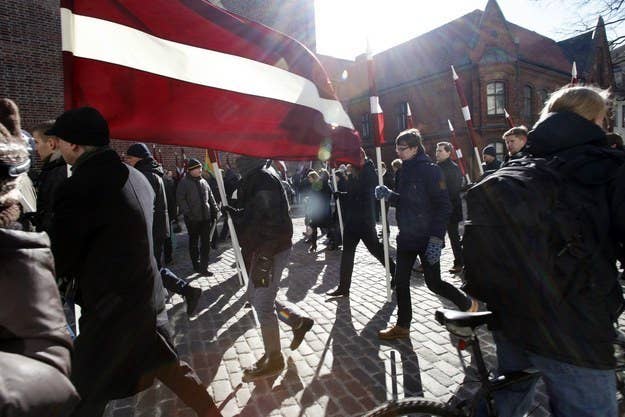
KIEV, Ukraine — A Russian official has warned that alleged discrimination against Russian-speaking minorities in the Baltic states "may have far-reaching, unfortunate consequences," fueling jitters that Moscow may seek to stoke tensions there as the Ukrainian crisis continues to fester.
Konstantin Dolgov, the Russian foreign ministry's human rights ombudsman, told a conference in the Latvian capital of Riga on Saturday that "entire segments of the Russian World" were struggling to uphold their human rights, according to a transcript published on the ministry's website on Monday. "One of the obvious and, perhaps, key reasons for this state of affairs is the ceaseless growth of xenophobic and neo-Nazi sentiments in the world [and] their subsequent deep penetration into the consciousness of the political establishment in a whole array of foreign governments," Dolgov said.
The timing and tone of his speech suggest Russia's growing willingness to use ethnic groups abroad as a political wedge. President Vladimir Putin has spoken frequently of his vision of a broader Russian-speaking federation in recent years and reserved the right to protect Russian speakers with military force after Russian troops annexed Crimea in March.
Despite their protection under NATO's collective security pact, leaders in Estonia, Latvia, and Lithuania, former Soviet countries that joined the alliance in 2004, have frequently worried that they will be next and urged their larger Western allies to do more. Since U.S. President Barack Obama visited Estonia earlier this month to underscore the West's commitment to defend them, all three countries have seen provocative incidents apparently designed in response. Russia arrested an Estonian security officer in what Tallinn said was a cross-border abduction; Russian authorities resurrected desertion charges against a Lithuanian who refused to serve in the Soviet army 24 years ago; and in Latvia, local television reported that the Russian embassy there was working to send Russian speakers, including ex-convicts, to fight alongside Russia-backed rebels in eastern Ukraine.
Dolgov's comments reflect long-held complaints that Baltic countries treat their Russian-speaking minorities as second-class citizens. Moscow claims that the states, particularly Estonia and Latvia, make it difficult for Russian speakers to attain citizenship and insult them by holding ceremonies honoring Balts who fought in Nazi SS divisions against the Soviet Union during World War II. Dolgov — whose office was essentially created to deflect criticism of Russia's own human rights record by pointing out abuses in the West, an old Soviet rhetorical trick known as "whataboutism" — accused European Union officials of "preferring to disseminate tired-out, frequently unfounded criticism of foreign governments instead of seriously dealing with the snowballing heap of human rights problems in their own houses."
Russia has been perfectly happy to work with the European far right when it suits it. Several far-right lawmakers who gave glowing marks to the Crimean secession referendum in March despite glaring irregularities were invited to repeat their role as observers at local Russian elections on Sunday, the independent newspaper Novaya Gazeta reported.
